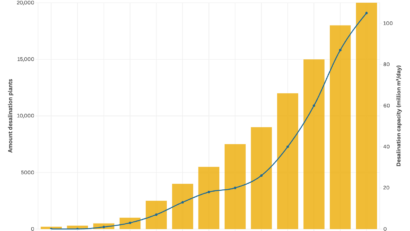For the first time, the world’s richest countries are taking steps to tax billionaires globally. Economist Gabriel Zucman has introduced a simple yet powerful idea: a 2% tax on billionaire wealth. This tax could raise $250 billion every year. To put it simply, just $23 billion of that money could end hunger worldwide. The G20 nations have now agreed to work together on this historic plan. It marks a major step toward creating a fairer global tax system.
Imagine a world without hunger. According to Oxfam, $23 billion (USD) a year would be enough to eliminate hunger and malnutrition. That’s less than 10% of what a global billionaire tax could raise annually.
But the potential goes far beyond feeding the hungry. The extra funds could transform education systems, build hospitals in underserved areas, and fund vital research on climate change. Some of the money could also support startups tackling social and environmental challenges.
How a Small Tax Could Change the World
The plan is straightforward. Around 3,000 billionaires worldwide would pay a minimum of 2% of their wealth in taxes each year. Those who already pay equivalent income taxes would not be affected.
Right now, billionaires often pay just 0.5% of their wealth in taxes. Under this new proposal, their contributions would finally reflect their immense resources. Experts estimate that this change could raise $250 billion annually.
To put it into perspective: Jeff Bezos, with a net worth of over $205 billion, and Mark Zuckerberg, worth $167 billion, would both contribute substantial amounts.
From Decades of Talks to Real Progress
After more than 10 years of discussions, G20 nations have finally begun to act. Last year, they reached a historic agreement on global corporate taxes. Now, they are turning their attention to taxing the world’s wealthiest individuals.
In June 2024, Zucman presented his plan to the G20 under Brazil’s leadership. His report (“A blueprint for a coordinated minimum effective taxation standard for ultra-high-net-worth individuals“) outlined how the tax could work on a global scale, ensuring fairness and effectiveness.
G20 Leaders Commit to Change
Countries like France, Spain, Colombia, and members of the African Union have expressed strong support for the plan. At the G20 summit in Rio de Janeiro, finance ministers pledged to collaborate on taxing billionaires more effectively.
Brazil, led by President Luiz Inácio Lula da Silva, has made tackling inequality a top priority. This agreement is an important first step toward making the billionaire tax a reality.
Is the World Ready for a Billionaire Tax?
Many experts and activists see this as a turning point. NGOs have also welcomed this step by the G20. Martin Kaiser, Executive Director of Greenpeace Germany, stated:
“The G20 are not letting the world’s billionaires off the hook for their responsibility in climate destruction. The development of a billionaire tax will continue. That alone is good news for greater fairness. It cannot be that the excessive lifestyles of just a few thousand billionaires around the world are massively fueling the climate crisis, which threatens us all.”
However, not all countries are on board. Major economies like the U.S., India, and China have reservations. For now, each nation decides how to tax its billionaires.
Meanwhile, the UN has approved a new global tax agreement aimed at preventing tax evasion by the world’s ultra-rich. Advocacy groups have called this move the most significant tax policy shift in decades.
This work is licensed under the Creative Common License. It can be republished for free, either translated or in the original language. In both cases, please cite Kontrast / Jasmin Mahmoud as the original source/author and set a link to this article on TheBetter.news. https://thebetter.news/portugal-drug-policy/ The rights to the content remain with the original publisher. Läs mer…





